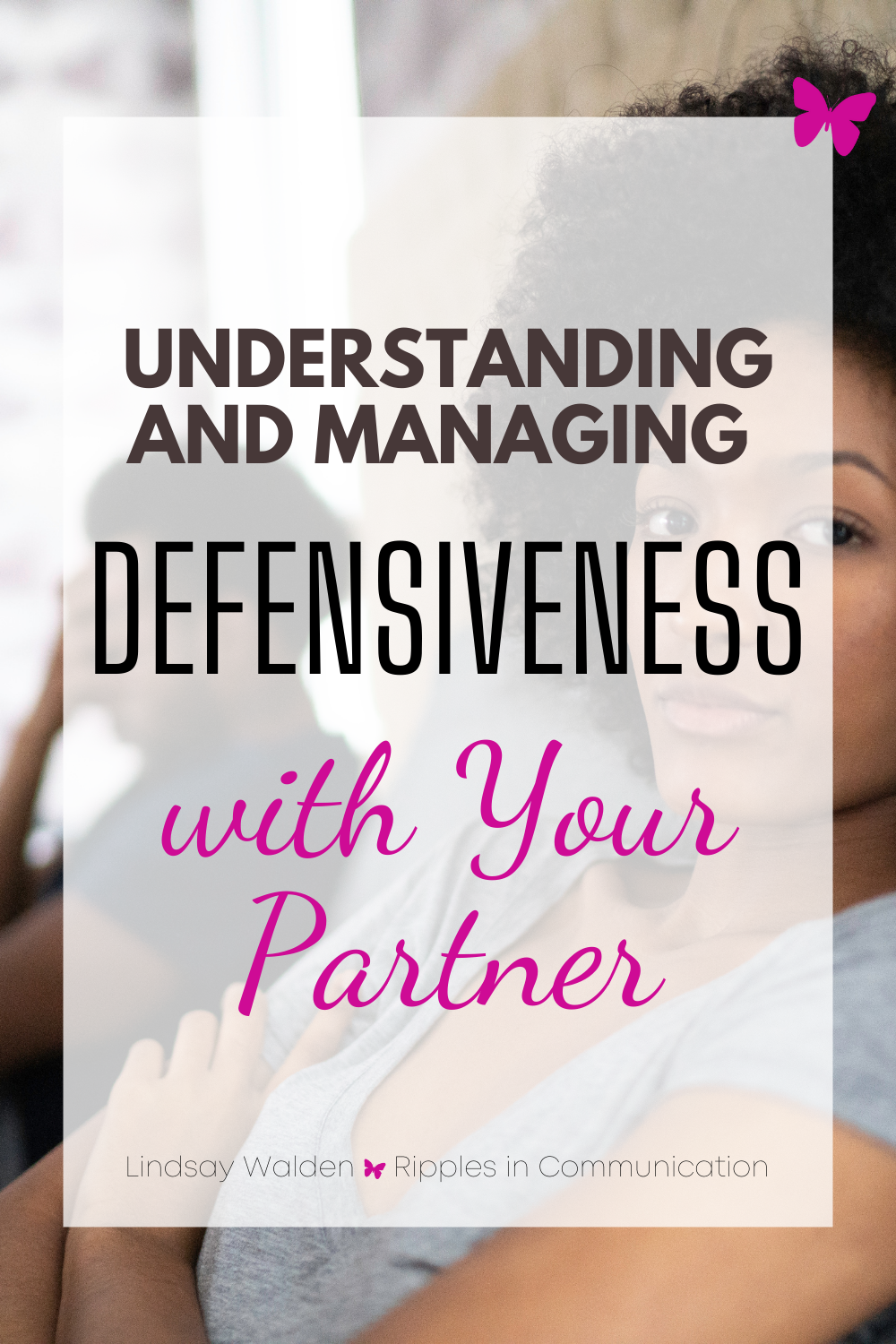How to Heal Together To Overcome Defensiveness
Navigating relationships can often feel like treading a complex labyrinth. Especially when disagreements arise, it's common (and painful) to find ourselves or our partners dredging up past mistakes or shortcomings. Understanding why this happens and how to address it is crucial for nurturing a healthy, thriving relationship.
The Toxicity of Rehashing the Past
During significant discussions about struggles or difficulties, a common yet toxic tactic is deflecting the current issue by bringing up past mistakes. This deflection is not just harmful; it's a red flag that needs immediate attention. It creates a cycle of unresolved issues, leading to a relationship where old wounds are constantly reopened.
Often, this behavior stems from past relationship issues and past trauma. People who frequently feel on edge or expect to be 'in trouble' might have a habitual defensiveness reaction. It’s crucial for them to recognize this and learn to manage it effectively. On the flip side, if you find yourself frequently on the receiving end of this defensiveness, it's important to understand that this reaction is more about the person being defensive than about you.
Have you gotten my FREE Relationship Communication Guide yet? Start building an authentic, conscious, and thriving relationship with your partner TODAY. Say goodbye to misunderstandings, conflicts, and missed opportunities for a deeper connection. These are the same tips and practical advice I give to my clients every day. With this guide, you'll be equipped to navigate any communication challenge and build a strong and fulfilling bond with your partner. Click the button below to enter your email address and I will send the guide to your inbox right away!
7 Steps to Reflecting on Projection
In relationships, the dance of projection and defensiveness often leads to a cycle of misunderstanding and hurt. If you find that defensiveness is a recurring theme, it's essential to engage in self-reflection. This process is not about self-blame but about understanding the dynamics at play. Here are 7 steps on how to embark on this journey of reflection.
Step 1: Acknowledge Your Feelings
Firstly, recognize and acknowledge your feelings. It’s okay to feel frustrated, hurt, or confused. Remember, your feelings are valid and deserve attention. This initial step is crucial as it sets the stage for honest introspection.
Step 2: Identify Your Triggers
Next, identify what triggers you to project onto your partner. These triggers could be specific words, tones, or actions. Understanding your triggers helps in recognizing moments when you might be projecting, rather than responding to the current situation.
Step 3: Explore Your Past
Often, our reactions in the present are influenced by our past experiences. Reflect on your past, especially your childhood and past relationships. Ask yourself questions like, “Did I feel unheard in my family?” or “Have past relationships made me feel like I need to be defensive?” This exploration can provide insights into why you might project certain things onto your partner.
Step 4: Practice Mindfulness
Mindfulness helps in staying present and aware. It allows you to notice when you’re projecting and pause before reacting. Simple mindfulness exercises like deep breathing or mindful walking can be incorporated into your daily routine.
Step 5: Communicate Openly
Once you have a better understanding of your projection tendencies, communicate this to your partner. This open communication can be a gateway to deeper understanding and empathy in your relationship. It's not about admitting fault, but about sharing your journey towards a healthier interaction.
Step 6: Seek Understanding, Not Blame
In your reflections, aim to understand, not to blame yourself or your partner. This approach fosters a non-judgmental space for both of you to grow and learn about each other.
Step 7: Consider Professional Guidance
Sometimes, having an external perspective can be beneficial. I am here to help guide you to digging deep, getting to the root of the problem, and helping you bridge the gap from what was to what is so you can move forward in your relationship. Send me a message and let's chat.
Reflecting on projection is a journey of self-discovery and growth. It requires patience, kindness towards oneself, and a willingness to change. By undertaking this journey, you pave the way for a relationship characterized by empathy, understanding, and deeper connection. Remember, this process is a step towards building a stronger, more honest relationship, not just with your partner, but also with yourself.
Gain a deeper understanding of your partner's defensiveness and learn how to manage it constructively. Transform challenges into opportunities for growth.
Unearthing the Roots of Defensiveness
Understanding the Impact of Childhood Environments
Many people are raised in environments where perfection is expected and making mistakes is not tolerated. This upbringing often leads to an adulthood where individuals automatically assume they are at fault during conflicts. Such individuals might constantly feel defensive in discussions, fearing criticism or rejection, reminiscent of their childhood experiences.
To address this, it's crucial to identify and acknowledge these childhood wounds. Reflect on questions like, “How were mistakes handled in my family?” or “Was there space for open, vulnerable communication?” Understanding these aspects of your past can shed light on why you react defensively in your relationship.
Addressing Current Unmet Needs
Alongside childhood wounds, current unmet needs in your relationship might also contribute to defensiveness. It's important to identify what needs are not being met. Are you seeking more emotional support, understanding, or validation? Communicating these needs to your partner can help in addressing them, thus reducing defensiveness.
The Downside of Constant Problem-Focusing
When a relationship is continuously bogged down by discussions about problems, it can start to feel burdensome and negative. This constant focus on issues can overshadow the positive aspects of your relationship, leading to dissatisfaction and a lack of fulfillment.
The key to breaking out of the 'problem mode' is to create a balance. This balance involves acknowledging and addressing issues while also making time for positive, enjoyable interactions.
Schedule 'Positive Time': Just as you might schedule time to discuss grievances, schedule time for positive activities. Plan date nights, engage in hobbies together, or simply spend time appreciating each other’s company.
Practice Gratitude: Regularly expressing gratitude for each other can shift the focus from problems to appreciation. Share what you value about each other and the relationship, no matter how small it may seem.
When addressing problems, approach them constructively. Instead of focusing on what’s wrong, discuss what can be improved and how you can work together to achieve it. This approach fosters a problem-solving mindset rather than a problem-focused one.
Understanding and addressing the roots of defensiveness, such as childhood wounds and unmet needs, and breaking away from the 'problem mode' are essential for a healthy relationship. These efforts require patience, understanding, and a commitment to growth. By tackling these issues together, you and your partner can build a more fulfilling and resilient relationship.
Follow these 7 crucial steps to stop bringing up past mistakes in arguments. Build a future-focused, healthier relationship.
7 Strategies for Breaking the Cycle of Defensiveness
Breaking the cycle of defensiveness and repetitive arguments in a relationship requires a structured and empathetic approach. Here are seven steps to help couples address underlying issues and move towards a healthier dynamic.
1. Schedule Regular 'Grievance Sessions'
Allocate specific times to discuss grievances. This planned approach prevents issues from randomly surfacing in daily interactions, which often leads to defensive reactions.
Set a Regular Time: Choose a regular time each week for these discussions. This predictability helps both partners prepare mentally and emotionally.
Create a Safe Space: Ensure that these sessions are held in a space where both partners feel comfortable and safe to express their thoughts without judgment.
2. Establish Ground Rules
Before you begin your sessions, set clear ground rules. These rules should encourage respectful and constructive communication.
No Interrupting: Allow each person to speak without interruption.
Stay on Topic: Focus on the issue at hand and avoid bringing up unrelated past mistakes.
Use “I” Statements: Encourage speaking from personal experience (“I feel…”, “I need…”) instead of blaming or accusing.
3. Prepare for the Discussion
Encourage each partner to prepare for the discussion by reflecting on their grievances and concerns.
Write it Down: Jotting down points beforehand can help in staying focused and clear during the discussion.
Identify Feelings and Needs: Try to understand the emotions behind the grievances and what needs are not being met.
4. Practice Active Listening
During the discussion, practice active listening. This involves fully concentrating on what is being said rather than just passively 'hearing' the message of your partner.
Acknowledge and Validate: Show understanding and validate your partner’s feelings, even if you don’t agree with their perspective.
5. Seek Underlying Issues
Often, repetitive arguments are symptoms of deeper issues. Use these sessions to explore underlying causes.
Ask Probing Questions: Questions like “What does this issue represent for you?” can help uncover deeper fears or insecurities.
Be Open to Discoveries: Be prepared to learn new things about each other and yourself.
6. Develop Actionable Solutions
Work together to find solutions to the issues discussed. Focus on actionable steps that both partners agree to undertake.
Set Goals: Agree on what both of you can do differently to address these issues.
Follow Up: Check in regularly on the progress of these goals.
7. Incorporate Positivity
End each session on a positive note. This could be through expressing appreciation for each other or planning a pleasant activity to do together.
Express Gratitude: Share something you appreciate about your partner.
Plan a Positive Activity: Schedule something enjoyable to do together after the session.
Breaking the cycle of defensiveness and repetitive arguments requires commitment, understanding, and patience from both partners. By following these steps, you can create a more open, empathetic, and constructive environment for communication. This process not only addresses immediate issues but also fosters a deeper connection and understanding within the relationship. Remember, the goal is not to eliminate disagreements, but to manage them in a way that strengthens rather than weakens your bond.
Conclusion: Embracing Growth and Understanding in Relationships
In the intricate journey of relationships, understanding and addressing the root causes of defensiveness and repetitive arguments is not just beneficial, it's transformative. By engaging in the seven steps to break the cycle of defensiveness, couples embark on a path of deeper understanding and empathy. This journey is not just about resolving conflicts; it's about growing together, learning about each other's past wounds, current needs, and hopes for the future.
Navigating through past mistakes, addressing childhood wounds, and balancing problem-solving with positive experiences, couples can cultivate a relationship where open communication, mutual respect, and genuine understanding are the norm. This process involves not just listening to what is being said, but also hearing the unspoken words, the fears, and the dreams behind them.
As a therapist, I am committed to guiding you through this journey. My role is to help you uncover and address these underlying issues, facilitating a process of healing and growth. By working together, acknowledging each other's feelings, and committing to positive change, you can transform your relationship into a source of strength and fulfillment.
Remember, the essence of a healthy relationship lies in its ability to adapt, grow, and flourish amidst challenges. It's about building a partnership where both individuals feel heard, valued, and understood. Through dedication, empathy, and a willingness to embrace change, you and your partner can create a lasting bond that not only withstands the tests of time but also enriches your lives with every step you take together.
Embrace these 10 powerful daily affirmations to overcome defensiveness and enhance communication in your relationships. Each affirmation is a step towards building a loving, empathetic, and understanding bond.







